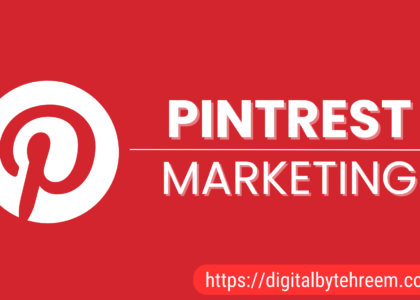As we step into 2025, the digital marketing landscape continues to evolve at an unprecedented pace. Driven by advancements in technology, shifting consumer behaviors, and the increasing importance of data-driven strategies, businesses are adapting to stay ahead in the competitive online space. Here’s a deep dive into the trending digital marketing strategies and tools that are defining 2025.
1. AI-Powered Personalization
Artificial Intelligence (AI) has become the backbone of digital marketing. In 2025, AI is no longer just a tool but a necessity for delivering hyper-personalized experiences. Marketers are leveraging AI to analyze consumer behavior, predict trends, and create tailored content for individual users. From personalized email campaigns to dynamic website content, AI ensures that every interaction feels unique and relevant.
For example, AI-driven chatbots are now capable of handling complex customer queries, offering product recommendations, and even closing sales. This level of personalization not only enhances customer satisfaction but also boosts conversion rates.
2. Voice Search Optimization
With the rise of smart speakers and voice assistants like Alexa, Siri, and Google Assistant, voice search has become a dominant trend in 2025. Consumers are increasingly using voice commands to search for products, services, and information. As a result, businesses are optimizing their content for voice search by focusing on conversational keywords and long-tail phrases.
Voice search optimization also involves ensuring that your website is mobile-friendly and loads quickly, as most voice searches are conducted on mobile devices. Brands that adapt to this trend are seeing a significant increase in organic traffic and visibility.
3. Video Marketing Dominance
Video content continues to reign supreme in 2025. Short-form videos, live streams, and interactive video content are capturing the attention of audiences across platforms like TikTok, Instagram Reels, and YouTube. Businesses are investing heavily in video marketing to tell their stories, showcase products, and engage with their audience in real-time.
Live shopping, where brands host live video sessions to demonstrate products and answer customer questions, has also gained massive popularity. This trend combines entertainment with e-commerce, creating a seamless shopping experience for consumers.
4. Augmented Reality (AR) and Virtual Reality (VR) Experiences
AR and VR technologies are transforming the way brands interact with their customers. In 2025, these immersive technologies are being used to create virtual try-ons, 3D product demonstrations, and interactive brand experiences. For instance, fashion brands are allowing customers to virtually try on clothes and accessories, while furniture companies are enabling users to visualize how a piece of furniture would look in their homes.
These experiences not only enhance customer engagement but also reduce the likelihood of returns, as consumers can make more informed purchasing decisions.
5. Sustainability and Ethical Marketing
Consumers in 2025 are more conscious of their environmental and social impact than ever before. Brands that prioritize sustainability and ethical practices are gaining a competitive edge. Digital marketing campaigns are now highlighting eco-friendly products, carbon-neutral initiatives, and fair-trade practices.
Transparency is key, and businesses are using digital platforms to share their sustainability journey with their audience. Social media campaigns, blog posts, and influencer partnerships are being used to communicate a brand’s commitment to making a positive impact on the planet.
6. Metaverse Marketing
The metaverse has moved from being a futuristic concept to a tangible reality in 2025. Brands are establishing a presence in virtual worlds, offering unique experiences that blend the physical and digital realms. From virtual storefronts to immersive brand events, the metaverse is opening up new avenues for customer engagement.
For example, fashion brands are hosting virtual fashion shows, while gaming companies are creating branded experiences within popular metaverse platforms. This trend is particularly appealing to younger audiences who are eager to explore and interact in these digital spaces.
7. Data Privacy and First-Party Data
With increasing concerns over data privacy and stricter regulations like GDPR and CCPA, businesses are shifting their focus to first-party data. In 2025, marketers are relying on data collected directly from their customers through website interactions, email subscriptions, and loyalty programs.
This shift not only ensures compliance with privacy laws but also builds trust with consumers. Brands are using this data to create more accurate customer profiles and deliver personalized experiences without compromising privacy.
8. Influencer Marketing Evolution
Influencer marketing has matured significantly in 2025. Instead of partnering with mega-influencers, brands are collaborating with micro and nano-influencers who have smaller but highly engaged audiences. These influencers are seen as more authentic and relatable, making their recommendations more impactful.
Additionally, brands are leveraging AI to identify the right influencers for their campaigns and measure the ROI of these partnerships. The focus is on building long-term relationships with influencers who align with the brand’s values and target audience.
9. Interactive Content
Interactive content is becoming a staple in digital marketing strategies. Quizzes, polls, surveys, and interactive infographics are being used to engage audiences and collect valuable data. In 2025, brands are taking interactivity to the next level with augmented reality filters, gamified experiences, and shoppable content.
For instance, beauty brands are creating AR filters that allow users to try on makeup virtually, while e-commerce platforms are incorporating shoppable videos that let users purchase products directly from the content.
Conclusion
The digital marketing landscape in 2025 is defined by innovation, personalization, and a deep understanding of consumer needs. Brands that embrace these trends and leverage the latest technologies will be well-positioned to thrive in the ever-evolving digital world. As we move forward, the key to success lies in staying agile, adapting to change, and always putting the customer at the center of every strategy. The future of digital marketing is here, and it’s more exciting than ever.





